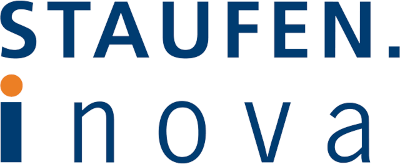
For more in-depth information:
Our Studies & White Papers

White Paper: Advancing excellence through training and development 2023
GROW. PERFORM. TRANSFORM to peak performance
In today’s competitive environment, continuous learning and training have become essential for personal and professional development. Our white paper examines the importance of developing skills and how training programs can help people reach their full potential while helping the company remain ready for the future.
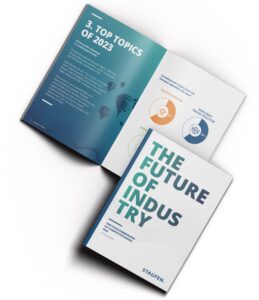
Study: Future Industry
THE FOUR DIMENSIONS OF COMPETITIVENESS
Becoming digital, efficient, sustainable, and resilient all at once is a major challenge for many companies today.
However, the Staufen “Future Industry” study shows that boards and management teams in industry have clearly set their strategic compass. The foundation for a sustainable, change-ready and resilient business is and will remain operational and digital excellence. When set up in this way, a multi-faceted challenge for a company can become a multi-faceted opportunity.
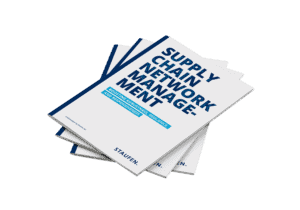
Whitepaper: Supply Chain Network Management 2023
BOOSTING ROBUSTNESS, RESILIENCE AND RESPONSIVENESS
What does the stable supply chain network of tomorrow look like? Those who come out on top will be supply chain networks that at their core have three capabilities: Robustness, responsiveness and resilience.
All reconfiguration measures are geared towards strengthening these three capabilities. Companies then benefit from the fact that a robust network has suitable measures in place to protect them against events with a lower severity and enables continuous operation. The more responsive the network is, the quicker the company is capable of making suitable adjustments and to continue with the performance.

White Paper: Go GREEN 2022
COMPETITIVENESS AND FUTURE ASSURANCE
Heat records, forest fires, dried-up rivers and lakes — climate change caused by greenhouse gas (GHG) emissions can no longer be ignored. In Germany, industry is responsible for around one-fifth of GHG emissions. According to the German Federal Ministry of Economics and Climate Protection, two-thirds of these emissions are generated during energy production, while one-third is released during the manufacture of products in the metal and chemical industries, for example.
While such process-related emissions – methane, nitrous oxide and fluorinated gases in addition to carbon dioxide (CO2) – are mostly unavoidable, the CO2 emitted by burning fossil fuels to generate electricity and heat can very well be reduced or even completely avoided. This is the reason why the German government is pushing for the conversion to a climate-neutral industrialized country – across the entire value chain.
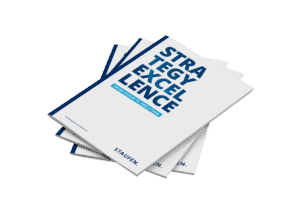
White Paper: Strategy Excellence
How to make the future happen
The question currently arises as to why the topic of strategy is just now gaining renewed attention among many companies. In our opinion, this is due to two developments: First, external influences such as political decisions or shorter technology cycles on companies and their market environment have significantly increased in strength and speed in recent years. As a result, the added value that companies create for their customers is coming under much more rapid and sustained pressure than it was a few years ago. Second, many companies are increasingly struggling to implement strategic initiatives. According to recent studies, the rate of ineffective strategic initiatives is around 50%. This represents a waste of resources that companies can no longer afford.
For companies, it follows from these two developments that they must implement excellent strategy development and deployment processes to ensure their long-term success in the marketplace.
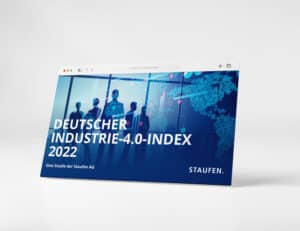
Study: German Industry 4.0 Index 2022
Staufen AG has compiled the German Industry 4.0 Index every year since 2014. Thus, the metric is nearly as old as the term Industry 4.0 itself. The 2022 index indicates that the German economy is threatening to split down the middle. 2, the German Industry 4.0 Index was compiled as part of the study “Companies in Transformation.”
For this, we surveyed a total of 363 companies in Germany in the fall of 2021, a good two-thirds of whom are from the mechanical and plant engineering industry, the electrical industry, and the automotive sector.

Study: Green Transformation in Mechanical and Plant Engineering
In mechanical engineering, experts currently see three megatrends, which must be combined at companies. Sustainability, digitalization, and systems engineering. According to expert opinions, in order to be able to guarantee comprehensive sustainability, mechanical engineering must work symbiotically with its customers. It is only possible to tackle systematic tasks such as the circular economy by uniting system builders and operators.
So that the green transformation succeeds, companies and their suppliers must cooperate more closely and increase their readiness for transformation. As the results of the study show, it’s likely that not all companies will succeed.
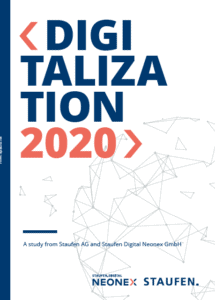
Study Digitalisation 2020
Digitalisation has been influencing our society for more than two decades now, making daily life far more convenient, accelerating our economy and enabling new business models and sources of revenue. Nevertheless, even today the capacity of inertia often seemed to be infinitely greater than the need to initiate long overdue changes – particularly in the manufacturing sector.
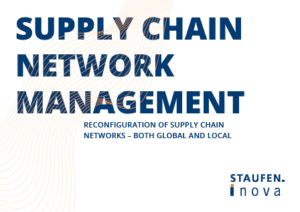
Whitepaper Supply Chain Network Management 2020
Optimisation measures tend to concentrate on internal processes. On the contrary, the focus is all too rarely on the increasingly numerous partners within the company’s own value creation network. This is an error, as crisis situations highlight that innnumerable companies need to reconfigure their supply chains. Our approach is to think holistically: classical Supply Chain Management becomes Supply Chain Network Management.

White paper: Process Automation 2021
HOW COMPANIES ARE REALIZING THE BENEFITS OF DIGITIZATION
For companies, the focus of most digitization measures is on performance. Modern digital technologies for process automation help achieve this goal.
Increasing efficiency, achieving greater transparency and reducing costs – according to the Industry 4.0 Index surveyed by Staufen AG, the majority of companies primarily pursue these three goals with digitization. The means to achieve this are modern technologies that focus on simple implementation and application.
